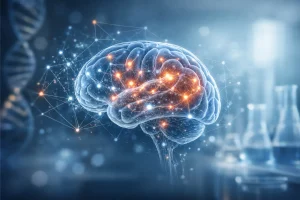Last updated: January 2026
In April 2025, the University of California San Francisco published a recent research article. Clinical trials studying the effects of psilocybin on human beings are in their infancy, so when a major university publishes findings such as these, it validates growing interest in psilocybin research and lived experience.

Psilocybin Research at UCSF
UCSF is currently actively recruiting new test patients who have Parkinson’s Disease and are experiencing depression. Very often, patients suffering from these combined (and related) conditions do not respond to antidepressants. Participation in the study takes approximately 60 hours across 14 visits, over the course of 22 weeks, starting with a 10 mg microdose which increases incrementally each visit.
Researchers involved in the initial study for this project suspected that psilocybin would improve the mood of their test participants, but they did not expect the high degree of improvement following psilocybin treatments, and how long these positive effects would last.
Study Findings and Long-Term Effects
According to the UCSF article, participants had significant improvements in their mood, cognition, and motor symptoms at both their one-week and one-month follow-up appointments. The research team evaluated the participants’ mood again three months after their psilocybin sessions and found it was still significantly improved. These findings could reflect a combination of physical and emotional changes that reinforce one another. For example, participants felt well enough to become more social and physically active, which in turn helped improve their mood, and a cycle of positive change was initiated.
“These results raise the exciting possibility that psilocybin may help the brain repair itself,” says lead researcher Joshua Woolley, MD, PhD. This result is especially exciting because this study represents the first time an active psychedelic ingredient has been tested on patients with any neurodegenerative disease.
What This Research Suggests
One day, science will catch up to current research on how psilocybin affects the brain. Research suggests that psilocybin microdosing may support mood and cognitive flexibility for some individuals. It’s also believed that macro dosing can lead to fascinating introspective discoveries, allowing you to think differently about yourself and others long-term and even, sometimes, for good.
These UCSF studies are funded by an anonymous donor. At the very least, we hope this kind of research can set the record straight when it comes to the cognitive benefits of delightful, mysterious, impactful magic mushrooms.
To find out if your brain responds well to psilocybin microdosing, explore our microdose products.



Link to the paper is needed.
Here you go: https://www.ucsf.edu/news/2025/04/429906/how-magic-mushrooms-could-help-parkinsons-disease-patients